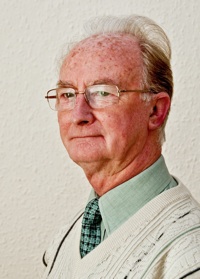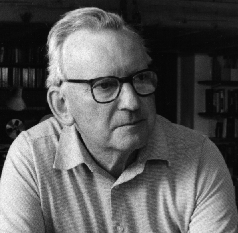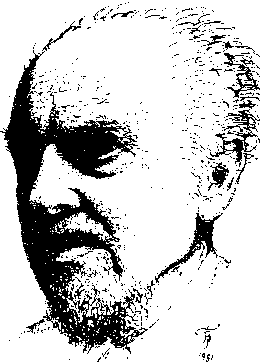PIPER COMPOSERS


PIPER COMPOSERS


ABEL, Carl Friedrich (1723 - 87) Flute quartets in F & D major edited by Dr. David J. Rhodes,
4 Trio Sonatas edited by Pat Spence,
ANDREWS, Jennifer :The Mellow Cello
ATHOL, David Vocal mainly for primary school use.
BACH, J. C. (1735 - 1782) Flute quartets W.B.57, 58 & 59 edited by Pat Spence, 6 Quintets opus 11,
BACH, J. S. (1685 - 1750) FAVOURITES SERIES for STRINGS. WOODWIND & BRASS
BANKS, Chris Penderyn (musical)with Chris Wright
BARRELL, Bernard Instrumental & orchestral
Orchestral music, chamber music, wind quintet,
BASS, Philip Viola Walkways: Four Lyric Movements (both viola & piano)
BAWTREE, MICHAEL Sonata No. 1 for piano
BUCALOSSI The Grasshoppers’ Dance arranged by Philip Lane for wind quintet
BYRNE, Charles G. Piece no. 1 & Fugue for string quartet
CAROLAN A Patchwork Suite arranged by Dannielle Perrett (solo harp)
DALE, Gordon (1935 - 2001) Music for professionals and for education. Represented in most sections of the catalogue.
Gordon was born in Wrexham and began his musical activities at an early age. By the time he was 11, several of his piano pieces had been broadcast on B.B.C. Children's Hour programmes. Besides piano, he also studied violin (Sylvia Cleaver), woodwind (Michael Krein) and conducting (Douglas Guest). He was musical director of the Handel Orchestra and also conducted the Jacques Orchestra as well as playing violin professionally. He moved into teaching which prompted his interest in writing music for his pupils and at age 33 became Britain's youngest music adviser in Dorset. Latterly he concentrated on composing and still taught a few pupils. His increasing problems with arthritis forced him to give up performing. He last conducted in the late1980s when he conducted several first performances of his works with the Staffordshire Chamber Orchestra. In 1999 Gordon suffered a serious stroke and was in a nursing home in Hereford where he still took a keen interest in all things musical - and cricket.
Gordon's music is always melodic and sensitively written for the instruments or voices and its apparant simplicity often masks subtleties of timbre which only emerge in performance. He never specified metronome speeds reasoning that a musician will know when a speed is right for the music. More details. A complete list of Gordon’s music is available on request.


ELGAR, Edward Favourites for strings arr. by Gordon Dale
FORD, Arnold F. Vocal music for primary age group.
The Wooden Horse Chestnut - Pantomime musical play for primary age children.
GAMBLE, Raymond 3Pieces for double bass & piano
GANGE, Kenneth (1939 - 2015) Most sections of the catalogue - education.

It was with great sadness that we learned of Ken’s death on Thursday November 19th from lung cancer. Our thoughts are with Jackie and the whole family.
Ken never smoked - but he did spend many years teaching in an exterior classroom made mostly of asbestos. He will be greatly missed for his kindness, enthusiasm and, of course, for his music.
Ken was born and brought up in South Wales. He taught for many years in Cannock where he still lived. Although he was self taught as a composer he was director of Stafford-shire's Young Composers' Guild. His works range from short choir pieces to orchestral works and are mainly written for pupils and choirs that he knew. Taking early retirement from full time teaching enabled him to concentrate on composing and playing piano and violin.
More details including a list of publications
GERVAISE, Claude Three Dances (1550) arranged Waddington (wind quintet / brass quintet)
GIARDINI, Felice de (1716 - 96) String Quartet in F (1776) edited by Dr. David J. Rhodes.
GILLESPIE, James Prima Passacaglia for school orchestra
GOODMAN, Mary Fast Tracking series for upper strings
GOW, David (1924 - 93) Born in London in 1924, David studied at the Royal College of Music with Gordon Jacob and Frank Merrick. Whilst at the RCM he was awarded the Cobbett Prize and Alfred J. Clements Prize for his first full length chamber work, a Clarinet Quintet. Later as an external student of Durham University, he obtained his b. Mus and m. Mus.
After college he taught for the WEA and the Extra Mural Departments of Oxford and London until he obtained a full time teaching appointment in London in 1962. In 1970 he moved to Wiltshire on his appointment as Lecturer in Music at the Swindon College where he remained until his retirement in 1986. He was also closely involved with the Open University from its inception in 1969.

David continued to compose music in spite of heavy teaching commitments, but his most productive period followed his retirement when many of his finest pieces were written.
David's music has been broadcast and performed in London and throughout the UK, Europe, USA, Canada, Japan and Australia. He described his musical language as "serialism tempered by tonality" and this ongoing interest in tonality resulted in a style which pervaded most of his music during his last 20 years. His distinctive characteristic rhymic patterns and motifs and his great skill in orchestration, never making unreasonable demands on performers, all contribute to a very distinctive voice. A list of David’s music is available from Piper Publications.
Instrumental, orchestral Concert band.
HAND, Colin South Bank Sketches (concert band)
HANDEL, G. F. (1685 - 1759) Favourites series for STRINGS, WOODWIND & BRASS
HARDWICK, Linda RECORDER MUSIC
HAWES, Jack (1916 - ) ocal, instrumental & orchestral.
Jack played the piano from the age of five and the organ from the moment his legs were long enough to reach the pedals. He was a boy chorister at St. Mary-le-Tower church, Ipswich from the age of ten and later played the cello too. Despite a thorough musical education, he pursued a career in insurance only devoting his full attention to his music in his long and very productive retirement. Sadly, Jack no longer enjoys good health and is now in a nursing home. More information - list of works.
HAYWARD, Rachel Steelpan music
HEDGES, Anthony (1931 - ) See Fast Tracking series & Folk song Flutes
A Life in Music by Paul Conway
HEFFES, Alex Panaphon with Rachel Hayward
HOOK, James (1746 - 1827) Flute music & Vocal Music edited by Dr. David J. Rhodes
LANE, Philip (1950 - ) Grasshoppers’ Dance for wind quintet
LE FLEMING, Anthony Partita for string orchestra More information
LILLFORD, Harold Streamline Your Sight Reading for brass
MACMILLAN,Carol
vocal music with project work for primary schools with Helen Williams: Song writer for ages 5 upwards:
MARSH, Lin Mozartissomo! Big Maggot Vocal music
MENDELSSOHN, F. B. Brass Favourites arranged by K. Gange
MILNES, Ian (1943 -) Favourite series woodwind, Holiday Suite, Viola Sonatina, Festival Prelude, Mirror of Galadriel , I Was Glad (SATB) STABLE BY NIGHT
MOZART, W.A. Favourites series for strings, brass, orchestra Mpzaerissimo!
NETTLESHIP, Stuart Prelude & Fugue on God Rest Ye Merry Gentlemen for orchestra
OSBORNE, Tony The Double Bass Sings
PAVEY, Sidney Gingerbread Man, Clarinet Sonata, Viola Sonata, Concertantel The Woodpecker
PERRETT, Danielle
A patchwork Suite for solo harp
PFEIFFER, F.A. (1752 - 1787) Duettos for Violin (Clarinet) & Bassoon (Cello) edited by Dr. David J. Rhodes; 6 Sonatas for Bassoon & Cello or keyboard (Rhodes), Bassoon Concerto No. 1 in D( Rhodes).
PFFEIFFER, Johann (1697 - 1761) Concertos for flute & strings, oboe & strings edited Rhodes.
PITFIELD, Thomas Baron (1903 - 99)







Tom was the unwanted child of elderly parents whose strict Victorian lifestyle and lack of sympathy with his artistic ambitions caused Tom to be withdrawn from school at 14 and apprenticed to an engineer in the workshop of Hick Hargreaves. His seven year 'serfdom' however, was not wasted. Many of his designs for transmission machinery for the cotton industry survive as do some exquisite Indian ink and water-colour paintings of railway engines. In his spare hours, his interest in music burgeoned. He studied piano, harmony and also played the cello. At 16 he made his first attempts at composition although he did not go to an orchestral or chamber music concert until he was in his early twenties. At this time he also wrote quantities of blank verse after the style of Shakespeare's sonnets. He continued to write poetry throughout his life. Whenever possible he escaped to the Pennine moors to sketch nature scenes - especially trees.
At age 21, Tom had saved enough to pay for a year's study at the Royal Manchester College of Music where his teachers were Thomas Keighley, Frank Merrick and Carl Fuchs. He always maintained that he was self taught as a composer - though he received informal help and encouragement from Eric Fogg of the BBC. A sixpenny purchase of '221 Scottish Songs, to which he improvised his own piano accompaniments, and the Russian folk songs he learned from his future wife, Alice (who, though Lancastrian born, grew up in Russia) were to prove a strong influence on his compositional stlye.
The death of his father in 1928 and the ill health of his mother with her doctrine of the 'Godliness of misery' blighted his life, preventing his marriage to Alice until 1934 and causing him to train as a teacher of art and cabinet work at Bolton College of Art where he won a scholarship in 1931. He was a brilliant student and much of his work from this period is now in the Pitfield Archive at the Royal Northern College of Music.
At about this time his first music was published by Augener and Oxford University Press, notably his best known work 'Prelude, minuet and Reel' for piano and a Piano Trio. He also received commissions from Hubert Foss for cover designs for various publications including Britten's Simple Symphony which, due to Britten's move to Boosey & Hawkes, was never used. In all Tom had his music published by more than 50 publishers
After various teaching jobs undertaken to supplement his erratic income from composition, Tom took up an offer from The Royal Manchester college of Music in 1947 where he taught until his retirement in 1973. His pupils included the composers, David Ellis, John Golland, John McCabe, John Ogden and Ronald Stevenson.
Around this time he was commissioned to write 100 short pieces for the Royal Academy of Dance's new ballet examinations. This collection, which brought his name to a wide audience, was frequently quarried for material of later works, notably the Flute Sonatina written for Gareth Morris.
The chamber music from his middle period is substantial yet beguiling. There is a formally ingenious Violin Sonata (no. 1) in which the finale, a set of cyclical variations, recapitulates in reverse order the themes from the whole work. In the two movement Oboe Sonata in A minor the second movement is a set of variations acting as slow movement, scherzo and finale combined. There is also an energetic Trio for flute, oboe & piano.
Tom Pitfields's three volume autobiography ' No Song, No Supper' (1986), 'A Song After Supper' (1990) and A cotton town boyhood' (1993) was published by Printwise Productions.
Despite stylistic traits which could descent to mannerism, including pianistic figurations using black and white note chords alternated between hands, and an inordinate fondness for 7/8 metre, Tom Pitfield had the gift for memorable tunes, often couched in somewhat French-sounding harmonic and decorative idiom. He admired Vaughan Williams, Grainger and Delius and their influence can be felt in his works. Composing for unusual instruments was a Pitfield speciality - he wrote solo works for accordion, clarsach, xylophone and harmonica.
A CD of Tom Pitfield's music is published by the Royal Northern College of Music, 124, Oxford Rd., Manchester M13 9RD price £8 (Promotions Department (0)161 273 6283). Works include: Violin Sonata no.1, Oboe Sonata in A minor, Prelude, minuet & Reel, Three Nautical Sketches, 3 Piano concertos and a selection of songs.
The orchestral version of the Three Nautical Sketches and the Recorder Concerto are available on CD from Naxos 8.572503. performed by John Turner and the Royal Ballet Sinfonia conducted by Gavin Sutherland.
The above is freely adapted from an article written by John Turner published in The Musical Times (Spring 2000 issue) with his permission.
A Flourish of Carols original version, SSA(A) , Concertino Academica for cello, Variegations for piano & orchestra woodwind chamber music, .recorder music.


PURCELL, Henry (1659 - 95) FAVOURITES SERIES strings, woodwind, brass.
QUICK, Dave Stardance & Munchin’ ‘n’ Crunchin’ with Jon Wakefield
REEMAN, John
A little Light Horn (horn & piano)
RHODES, Dr. David j.
Editor & arranger of works by JAMES HOOK, ABEL,J. C. BACH, F. A. PFEIFFER, J. PFEIFFER, RITTER, C. STAMITZ, STEFFANI, STUMPF, ETC.
RITTER, G.W. (1748 - 1808) Duetto for bassoons edited Rhodes
SCHUBERT, F. (1797 - 1828) FAVOURITES SERIES, Strings, Woodwind, Brass. March Militaire
SMITH-MASTERS, Anthony
Clowns (oboe, clarinet & bassoon): Zoo Walks (clarinet & piano)
STAMITZ, Carl (1745 - 1801) Bassoon Concerto in F (bassoon & orchestra or keyboard) edited & arranged Rhodes
STEFFANI, Jan(1746 - 1829)
The two Harmonies and Serenata Parthia edited by Dr. David J. Rhodes from manuscripts previously attributed to J.A. Steffan are now believed to be the work of Jan Steffani. Grateful thanks are due to Mr. Jon Gillaspie of London who has traced other, previously believed 'lost' compositions for wind ensemble also by Steffani, the title page of which (6 Partitas published by J.J.Hummel in 1786 in Berlin as his Op. 1) indicates beyond a shadow of doubt that Steffani, not Steffan, composed all of these works (at least there is now no evidence to suggest that J.A.Steffan even composed the two Harmonien at Schwerin).
Part of Steffani's duties at the Polish court where, according to The New Grove, he was in service from 1779, was in fact to compose Harmoniemusik. Whether the three works in the Piper Edition (which do not correspond with any of the Op. 1 set) were composed for the Polish King Stanislav or for courtly ensembles elsewhere in Europe is not known, however.
STOCK, Jonathan Text books. Harmony for Beginners, Music History & Form.
STUMPF, J. C. (c 1740 - c1801) Harmonie for wind ensemble edited Rhodes
SULLIVAN, Arthur FAVOURITES SERIES, - STRINGS, WOODWIND, BRASS
TCHAIKOVSKY, P. I. Favourites series STRINGS
WADDINGTON, Patricia THE WELL-TEMPERED FLAUTIST PLAY THEM TOGETHER 11 Familiar Rounds (mixed instruments): Gervaise Three Dances - arranger: Handel, Pastoral symphony - arranger.
WADE, Darrell THE FIRST YEAR ORCHESTRA, THE SECOND YEAR ORCHESTRA
WAKEFIELD, Jon Stardance & Munchin’ ‘n’ Crunchin’ with Dave Quick
WALDOCK, Wendy
FAST TRACK BOWINGS for cello, Double Bass.
WARD, Clare Serendipity for Fast Trackers, Songs.
WARD, Ron Humbug! Musical with Tony Weston
WESTON, Tony Humbug! with Ron Ward with Ron Ward
WILLIAMS, Helen Vocal music with project work for primary schools with Carol MacMillan:
WRIGHT, Chris Penderyn (musical) with Chris Banks
YARWOOD, Ron Wind quintet
